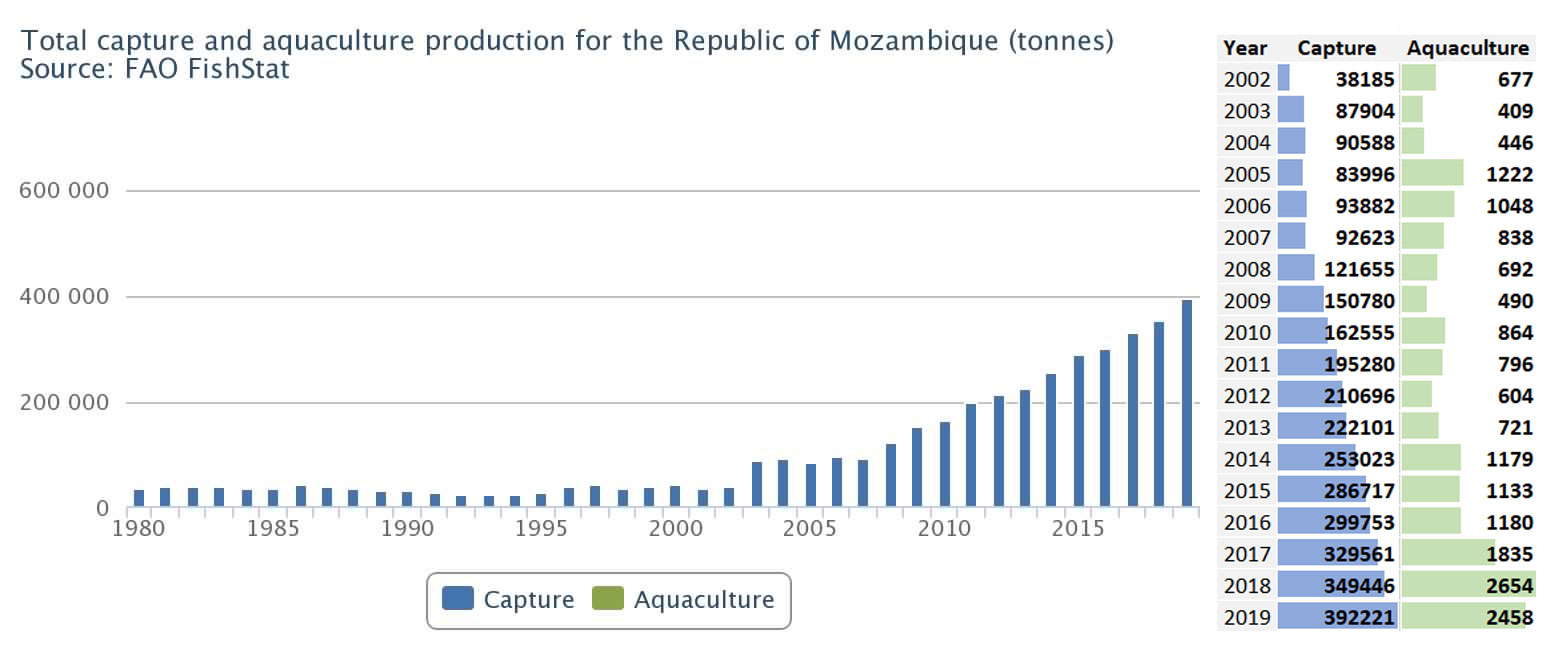The SFC team welcomes Mozambique aboard

Down the coast of Southeastern Africa, bordered by the Indian Ocean, the Republic of Mozambique has the geographic potential to develop its economy, reduce poverty and improve livelihoods from aquatic resources.
Mozambique has a coastline of 2 470 km (one of the largest in Africa), it is crossed by several rivers and can count on two large freshwater basins. The Maputo Bay and Sofala Bank are the most productive marine fishing areas, the latter known for the shallow-water shrimp capture. The aquaculture sector is traditionally based on artisanal culture of freshwater species, such as the Oreochromis mossambicus, a farmed species well-adapted to the country environment.
The fisheries and aquaculture sector has the potential to contribute significantly to the population wellbeing, by providing sources of protein in diets and job opportunities. Currently most fish caught is sun-dried and traded at the regional level in Mozambique and neighbouring inland countries. Nevertheless production shows a discretely growing but fluctuating trend, with aquaculture now recovering after the white spot disease, which devastated the shrimp farms in 2011.

Boosting the fisheries sector is one of the areas of intervention of the Government of the Republic of Mozambique, to foster economic growth in the country, fight poverty and reduce vulnerability. To achieve this, the Government enacted a new fisheries law, the Revised 2020 Fisheries Maritime Regulation (REPMAR), which came into effect in January 2021. The law seeks to empower the fishing communities and protect Mozambican aquatic species.
One effective way to achieve this and strengthen the fisheries and aquaculture sector may be to improve the efficiency of the co-management systems and plans.
In this context, the Ministry of Sea, Inland Waters and Fisheries of the Republic of Mozambique has started a collaboration with the Food and Agriculture Organization of the United Nations (FAO) through the project “Smart Fisheries Co-Management” to drive fisheries and aquaculture development in the country.
The project is funded by the Ministry of Oceans and Fisheries of the Republic of Korea within the framework of the Korea FAO Sustainable and Innovative Fisheries and Aquaculture Programme (KOFAP) and focuses on promoting the co-management as a key element to boost the sector economy and promote a sustainable future for the aquatic resources while moving towards the achievement of the United Nations 2030 Agenda for Sustainable development.
A well-designed co-management system promotes sustainability and livelihoods through a multi-participatory approach for shared rights, responsibilities, and decision-making. Combined with an effective co-management plan, it may enhance the effectiveness of the whole fisheries value chain.
The first project activity will be the development of a feasibility study. Based on the results of this study, a detailed action plan will be prepared. The project aims at developing training materials for the establishment of a fisheries co-management system both at the national and local level, in line with the Revised 2020 Fisheries Maritime Regulation (REPMAR). The project will also deliver a training programme and training materials for the development of diverse livelihoods in Mozambique.
The project agreement was signed on 16 September 2021 by Her Excellency Augusta de Fátima Charifo Maíta, Minister of Sea, Inland Waters and Fisheries and Mr Hernani Coelho da Silva, FAO Representative in Mozambique.
The FAO SFC team welcomes Mozambique aboard and looks forward to a fruitful and successful collaboration.

